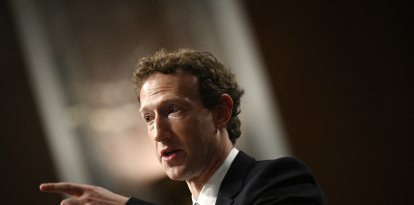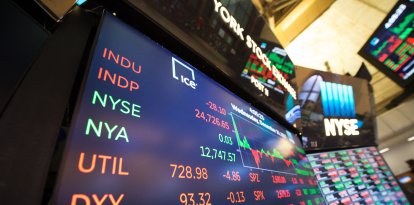Biden administration plans to quadruple tariffs on Chinese electric vehicles
The tariff rate would go from 25% to 100% and an additional 2.5% tariff would be applied to all cars imported into the United States.

(AFP)
The United States is preparing to announce new tariffs on strategic Chinese production sectors, including a substantial increase in tariffs on electric vehicles manufactured in China.
According to an exclusive report in The Wall Street Journal, the new tariffs will significantly affect clean energy products from China.
The media, which revealed that the measure could be announced next Tuesday, also detailed that the higher tariffs will affect critical minerals, solar products and batteries from China.
However, the main change affects Chinese electric vehicles, whose tariff rate will increase from 25% to 100%.
Additionally, the WSJ explained that an additional 2.5% tariff will be applied to all cars imported into the United States.
A priori, the new tariff rate could further impact the import of Chinese electric vehicles. With a 25% tariff, these vehicles are already significantly excluded from the U.S. market despite often offering much cheaper models than Western vehicles.
However, Biden administration officials, automakers and some lawmakers "worry that wouldn't be enough given the scale of Chinese manufacturing," the WSJ detailed.
President Biden's decision, amid a heated presidential campaign where he faces serious popularity problems, comes just at the end of a year-long review of tariffs imposed on some $300 billion in Chinese goods during the Trump administration. The WSJ reported that this move has long divided Biden's economic advisers.
"Whether to adjust the Trump-era levies divided the Biden administration's economic advisers for years, with trade officials pushing for higher duties and others, such as Treasury Secretary Janet Yellen, calling for lowering tariffs on consumer goods while focusing duties on strategic sectors," reads the WSJ.
Finally, signs that China was increasing exports of clean energy products were decisive in the White House's decision to raise tariffs.
The measure has, of course, electoral overtones. In this presidential campaign, former President Trump promised that, if he returned to the White House, he would consider imposing tariffs of 60% or more on all Chinese imports, especially electric cars.
Therefore, Biden's decision seems like a way to take over a topic of conversation that will be vital in the fight to win undecided states like Pennsylvania and Michigan, where both Biden and Trump promised to protect American industry and workers from unfair foreign competition.
Meanwhile, China, through a Foreign Ministry spokesperson, denounced the Biden administration's tariffs plans during a Friday briefing.
The Asian giant expressed displeasure, arguing that these measures have undoubtedly disrupted trade and relations between the two countries.
"China will take all necessary measures to defend its rights and interests," the spokesperson said.

























